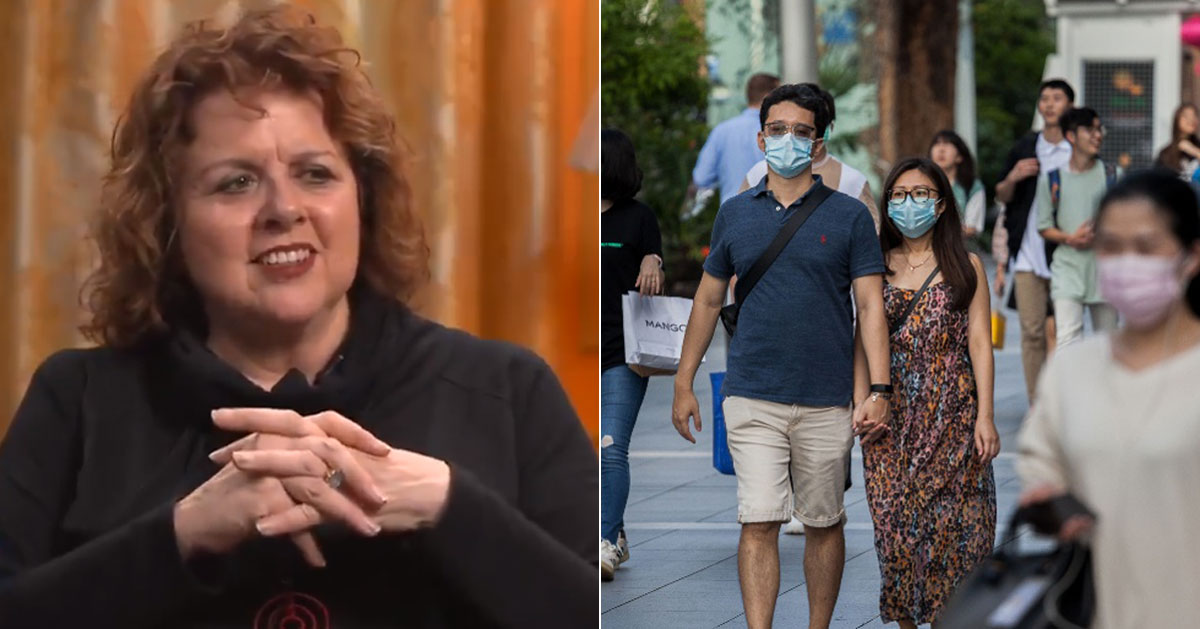A Pulitzer Prize-winning science writer and epidemic expert has said that if Singapore can't contain Covid-19, then the rest of the world stood little chance.
Speaking to The Epoch Times, Laurie Garrett — who won a Pulitzer Prize for her explanatory journalism on the Zaire Ebola outbreak in 1996 — said that she would be watching Singapore's battle with the coronavirus closely.
When asked about how she thought this current epidemic would develop six months down the road, Garrett said: "I think that the answer to that lies with paying really close attention to how this plays out right now in Singapore and Hong Kong."
She explained that with both cities being advanced, geographically small but highly populous, "explosive spread" could mean "tremendous difficulty ahead for the whole world".
Garrett who indicated how impressed she was with Singapore's healthcare system said that it was now being "put to the test".
She said: "If Singapore can't do it, if Singapore can't keep it under control, then we're all screwed because they've got the best system in the world."
The two-minute segment where she talked about Singapore has been shared online:
High praise for PM Lee
Garrett also reserved some praise for Prime Minister Lee Hsien Loong and his recent speech urging Singaporeans to remain calm amidst the Covid-19 outbreak.
She said: "It was all one of the most transparent, wise speeches I’ve ever heard about a disease from a head of state."
The speech, which was also hailed by foreign media, saw PM Lee elaborating on the risks involved with the nation's Covid-19 battle as well as the steps taken by his government.
Should you wear surgical masks?
Garrett also explained why she did personally use or advocate the use of surgical masks.
"There's very few that work," she said before describing the findings of a study that she was apart of that looked at "every kind of mask out there".
She said: "It's pretty clear that as soon as even the most sophisticated N95 or surgical mask get moist, you see a rapid reduction in the efficiency of blocking virus with the mask."
"I would say — outside of the surgical theatre and the direct medical setting, but in average everyday use — probably the greatest thing a mask does is remind the person looking at you to be nervous."
That's not all bad, according to Garrett, who believes that an unintended effect of mask-wearing could be that people start taking other more effective personal hygiene precautions, such as regularly washing their hands.
Transcript of the segment:
Questions: What do you think things would go in the next six months?
Garrett: I think that the answer to that lies with paying really close attention to how this plays out right now in Singapore and Hong Kong.
And if they have really explosive spread inside those two very advanced, small, high population but geographically small locations, then I see tremendous difficulty ahead for the whole world.
So, you know, I'm keeping my eyes on Singapore and Hong Kong.
And it's very interesting to me to watch the prime minister in Singapore give a speech to the nation two days ago.
He was casually dressed, sitting in his living room, or what was supposed to be believed was his living room like this, and just looking into the camera, and for like 35 minutes, very calmly went through all the risks, all the steps being taken, what citizens should do, what physicians should do, and it was all just one of the most transparent, wise speeches I have ever heard about a disease from a head of state.
Singapore paid a huge price with SARS. Every time I've been back there I've seen more improvements in infections control, in hospitals, really close attention to this potential.
So now they're being put to the test.
If Singapore can't do it, Singapore can't keep it under control, then we're all screwed because they've got the best system in the world.
Garrett's full interview can be watched here:
Top image from American Thought Leader's YouTube Channel & Getty
If you like what you read, follow us on Facebook, Instagram, Twitter and Telegram to get the latest updates.
